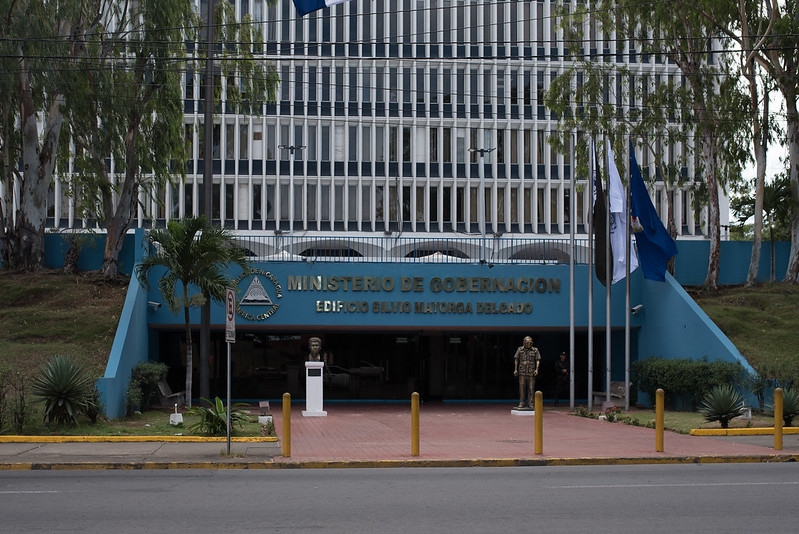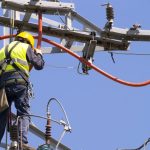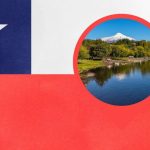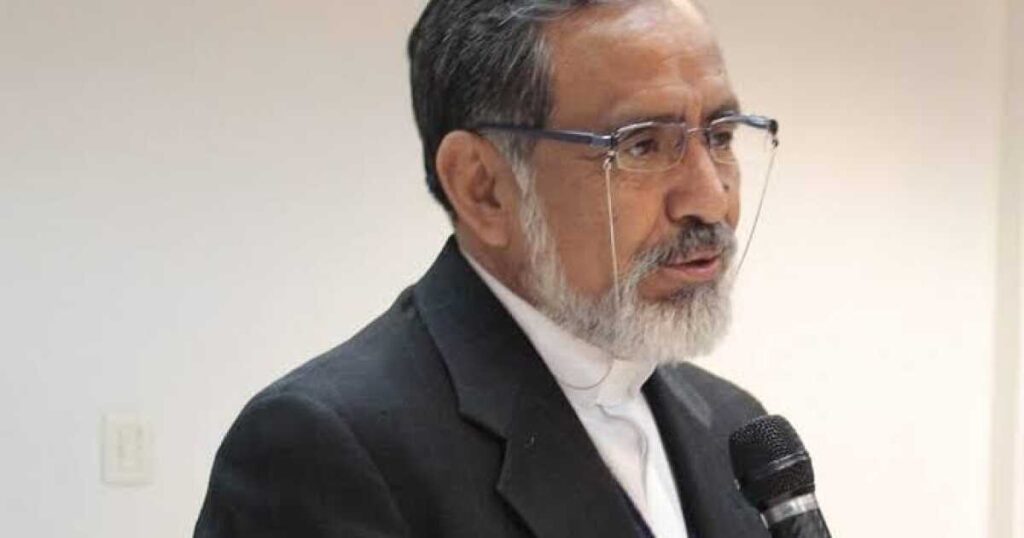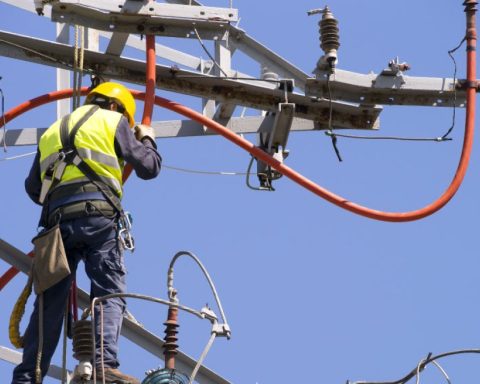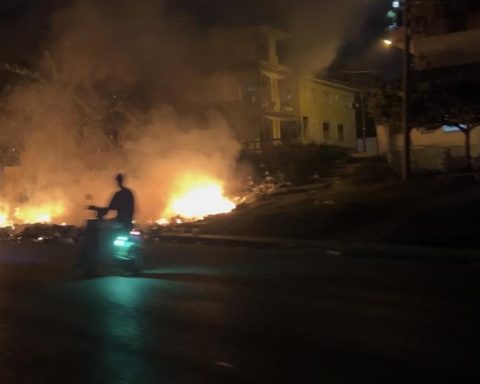Far from the big cities, in the coffee plantations of Nicaragua, children and adolescents stopped working to learn to read. His education was possible, to a great extent, thanks to the contribution of the Seeds for Progress Foundation, which since 2013 promoted quality education in schools in coffee-producing communities, but on June 10 it was canceled by the regime of Daniel Ortega and Rosario Murillo, as part of a crusade against non-profit organizations, which has already reached 53 foreign NGOs, including this one.
The cancellation of these organisms has been confirmed by the Ministry of the Interior (Migob), between August 2021 and June 2022. Most of them worked in areas of social development, education, health, democracy and human rights, so their unexpected closure left limbo to an as yet unquantified number of beneficiaries.
The intervention of Seeds for Progress in the coffee-growing areas of Jinotega, Matagalpa, Nueva Segovia, Madriz, facilitated learning for rural children to develop their skills and prevent child labor.
At the time of cancellation, Seeds for Progress attended five child labor prevention programs during the coffee harvest. They benefited 5,879 students and 340 teachers in 29 schools in 148 communities in Nicaragua and Guatemala.
A source linked to the international NGOs that have been outlawed by the Government revealed that in October 2020 an evaluation was carried out on the impact of the cooperation channeled by these organizations.
“The evaluation is partial, because only 27 international organizations provided information,” the source specified. “Among these 27 international NGOs, they channeled 25.5 million dollars a year in cooperation with Nicaragua, directly reaching 550,000 people, especially in rural areas,” she added.
Among the 53 international organizations whose registrations in Nicaragua were canceled are: Fundación Oxfam Intermón, Helping Hands The Warren William Pagel, MD Foundation, International Republican Institute (IRI), National Democratic Institute for International Affairs (NDI), OXFAM IBIS, Denmark and DIAKONIA, Sweden.
Other canceled foreign NGOs are: Doctors of the World, from Spain, and the Dutch Service for Development Cooperation (SNV), which had already anticipated its closure and transfer of aid to other countries in the region.
Also cancelled: Fabretto Children’s Foundation INC, Global Communities, Belgian Development Cooperation Fund, Catholic Agency for International Development, Christian Aid, Project Chacocente, Fyera Foundation, Hope Road Nicaragua INC, The Nature Conservancy, Fundación Semg Solidaria; among other.
One of the oldest in Nicaragua
Medical International EV, was “one of the oldest international NGOs in Nicaragua,” warns epidemiologist Leonel Argüello, who was closely acquainted with the work of the organization of German origin. “It began to function in the eighties –he recalls–, when there were few international NGOs (in the country) and it was vital in terms of support for the Ministry of Health (Minsa) and they influenced the construction of the San Carlos hospital, in Río San Juan”.
However, the NGO’s registration in Nicaragua was canceled by Migob on May 24, alleging that its actions hinder “control and surveillance” by not reporting its financial statements, the identity and origin of its donors, or registering as “foreign agents”. The Interior decree says that the NGO was registered in 2002, but the agency’s website records health care work between 1978 and 1988.
In the 1980s, “they supported Río San Juan for a long time. Later, in the 1990s, they continued to support non-governmental organizations, gave a lot of advice for project formulation and were always there to support Nicaragua,” Argüello said.
Among the latest projects of Médico Internacional in Nicaragua, the following stand out: the process of training therapists for the healing of grief and trauma; the systematization of psychosocial training processes; addressing the covid-19 epidemic through training and equipment for health personnel; support for the population affected by hurricane Iota and humanitarian response to families affected by hurricanes Eta and Iota.
Organizations supported the Government
The Our Little Brothers Association is another NGO that was canceled on June 13, after 28 years offering comprehensive protection and development to children and adolescents in the departments of Granada, Rivas and Carazo.
The Government accuses her of not registering as a “foreign agent” and of “hindering the work of supervision”, despite the fact that in recent years she has worked with the Government in the family insertion of children of the state Love Program.
“For 28 years, Nuestros Pequeños Hermanos Nicaragua has provided care to more than 1,000 children and adolescents, providing a comprehensive education to the students who attend our school under Catholic Christian principles in the modalities of: initial education, regular primary, secondary daytime, vocational workshops and education for youth and adults”, indicates the organization’s website.
Dutch Cooperation Service
The Dutch Service for Development Cooperation (SNV) last operated on December 31, 2021, and moved to “other geographical regions of the world where there is limited capacity in access to basic services”.
“The decision to cease activities in Nicaragua takes into account that local capacities have already been created and that the impact is minor compared to other geographies,” the SNV explained, in a December 14 statement.
The SNV has been present in Nicaragua since the mid-1980s, although its registration with Migob dates back to 2010, “and has generated positive impacts for thousands of Nicaraguan families through numerous programs and initiatives that include agriculture, renewable energy , water and sanitation”, indicated the NGO.
Imposition Causes Exit from Nicaragua
The Doctors of the World organization, from Spain, closed in February 2019, after failed negotiations with the regime in the context of the socio-political crisis that the country has been going through since 2018.
“Doctors of the World, given the situation of human rights violations in the country, conveyed to the authorities the desire to continue strengthening the work of civil society organizations, but temporarily suspending support for state agencies,” he warned in a statement.
“Given the impossibility of being able to maintain our presence in Nicaragua by accompanying only civil society organizations and suspending institutional support, we made the difficult decision to leave the country,” they added.
The organization expressed its concern that his departure is interpreted “as an abandonment” to people, but they maintained that “alignment with our ethics, values and principles prevailed, as well as safeguarding the independence we have as an organization, working with partners and allies that we consider pertinent, without government impositions”.
